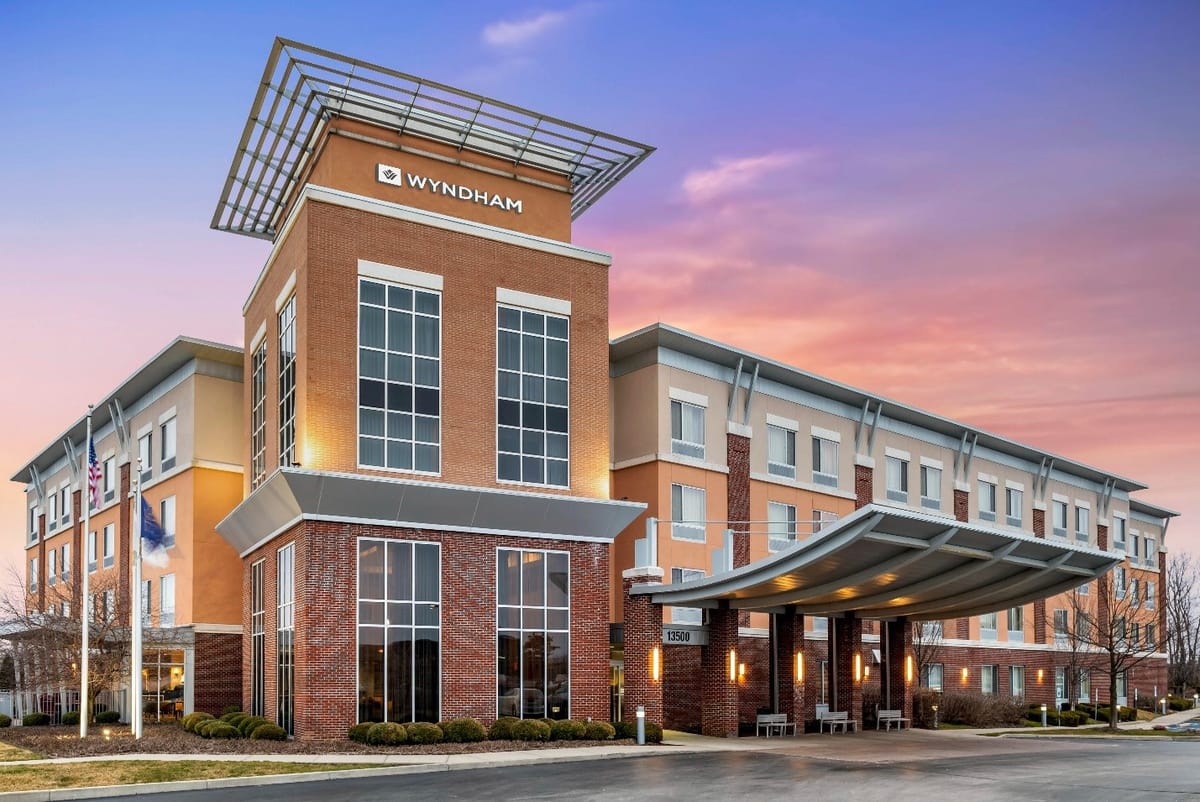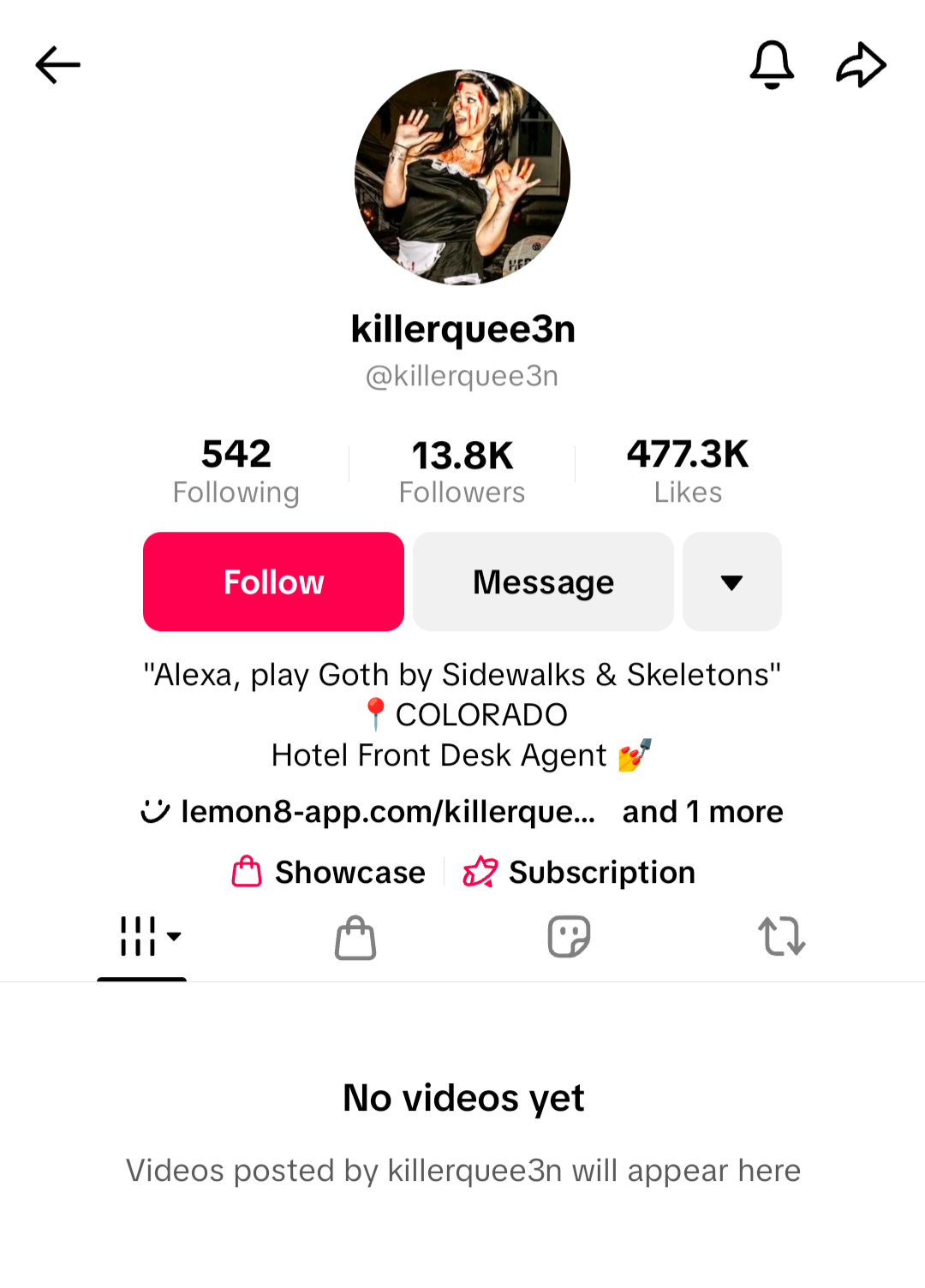A Colorado Hotel's Front Desk Representative Just DOXed Their Banned Customers on TikTok
Wyndham staff were notified within 24 hours of the video's upload and are investigating

Many of us expect that at one time or another, our data will most likely be breached by a hacker; a legitimate intruder that makes their way past a brand's safeguards, and posts our travels for the internet to see.
What many of us don't expect, is for the call to come from inside the house.
On June 4th 2025, Shanoa Lynn Cobb of Pueblo Colorado, known elsewhere online as variations of "killerquee3n", took to TikTok to chatter about a plight all-too-familiar with hospitality employees; the Do Not Rent list.
a) casually or formally restricted from being served at that establishment
(the business reserves and executes their reserved right to not do business with a guest electively, with or without cause)
or
b) criminally trespassed from the property and subject to arrest on return
(the business has established that the guest is no longer legally permitted at the property)
While Do-Not-Rent lists serve as a cornerstone of guest safety in some locations, they also can be used as an unwitting conduit for dishonest and misleading information that otherwise impacts a guest's ability to purchase adequate and safe shelter.
Just as easily as you can be placed on a Do-Not-Rent list for attempting to torch a property, personal vendettas and agendas can inspire modifications to the perception of a guests behavior and language, which can subsequently artificially create the scenario in which the guest is no longer able to be served by the business.
Sharing a video and voiceover coming in at just over a minute long, Shanoa went through some of the star reasons prior customers had (allegedly) been trespassed from the establishment she was working at for.
Being angry, smoking in non-smoking rooms, dumping old tires at the property, letting the homeless in through time-restricted entryways, ripping towel racks off the wall, slamming doors, fighting in the parking lot, "being disgusting", having drugs on the property, leaving behind needles and smoking foil, destroying room wiring, dying hair purple, leaving bathrooms a mess, defecating on the floor, letting animals defecate on the floor, breaking windows, urinating on the building before checking in, fighting the local fire department, fighting the employees, "abusing the ice machine", stealing guest laundry, asking employees for drugs, burglarizing a local Days Inn, punching holes in bathroom doors, urinating on the beds, pepper spraying other guests in the parking lot, abandoning shopping carts on the property, splattering blood on the walls, exceeding permitted room occupancy, unspecified police activity, and failure to pay outstanding debts.
The problem with sharing this information? She forgot to obfuscate customer names in the video.
The now-wiped TikTok video
Uncensored at certain points, a list of some trespassed guests first names, last names, a reference date, and a short description of the cause for their trespass were flaunted on the popular social media platform for almost 24 hours before Wyndham Corporate was contacted by our team, who worked to connect the video to a property location and associate.
Within half an hour of Wyndham's notification, Shanoa's primary TikTok was unavailable, and the franchisee responsible for the property had been made aware.

Her backup TikTok account, which contained no customer data, has remained untouched.
While the view that guests damaging property relinquish their right to privacy may seem easy to adopt and defend, a more compelling legal precedent cautions against the public disclosure of any customer information via social media. Such actions universally expose businesses to significant legal liabilities, including defamation, slander, libel, and related civil claims.
It is plausible that many individuals on the "Do Not Rent" list engaged in behavior that rendered them a liability or otherwise made their presence undesirable, and hotels, as private properties, certainly retain the right to trespass individuals at the discretion of management. However, the critical distinction lies in the basis of these trespass decisions: they often stem from subjective staff perceptions rather than verified, objective facts. Consequently, the documented reasons for a trespass can be untruthful or lack vital context. For example, a guest blacklisted for soiling a floor might be unfairly maligned if the incident resulted from an acute, travel-related illness (a shockingly frequent occurrence) rather than intentional misbehavior. The omission of this context would create a misleading narrative of the guest being banned, potentially defaming the guest by portraying a medical issue as an act of deliberate vandalism.
As Wyndham continues to investigate, this mistake stands to serve as a reminder both ways; don't destroy hotels willing to house you, and don't share customer information online all for a couple views.
Wyndham Hotels & Resorts, Inc. is a hotel franchisor.
It grants licenses to independent third-party entities (franchisees) to own and operate hotels under various Wyndham brands (including but not limited to Wyndham®, Ramada®, Days Inn®, Super 8®, La Quinta®, and others).
Each Wyndham-branded hotel is a separate legal entity, independently owned and operated by a franchisee. Wyndham Hotels & Resorts, Inc. does not own, manage, or control the day-to-day operations of these franchised locations.
All decisions regarding the hiring, training, supervision, and termination of hotel employees, as well as wage and hour compliance, are made exclusively by the franchisee. If you have been subjected to a tort as a result of a property employee's actions, you must seek legal remedy with the franchisee; Wyndham Corporate bears no legal responsibility or carriage of your contract.
The franchisee is solely responsible for the physical condition of the hotel premises, operational standards, guest safety, and compliance with all applicable federal, state, and local laws.




